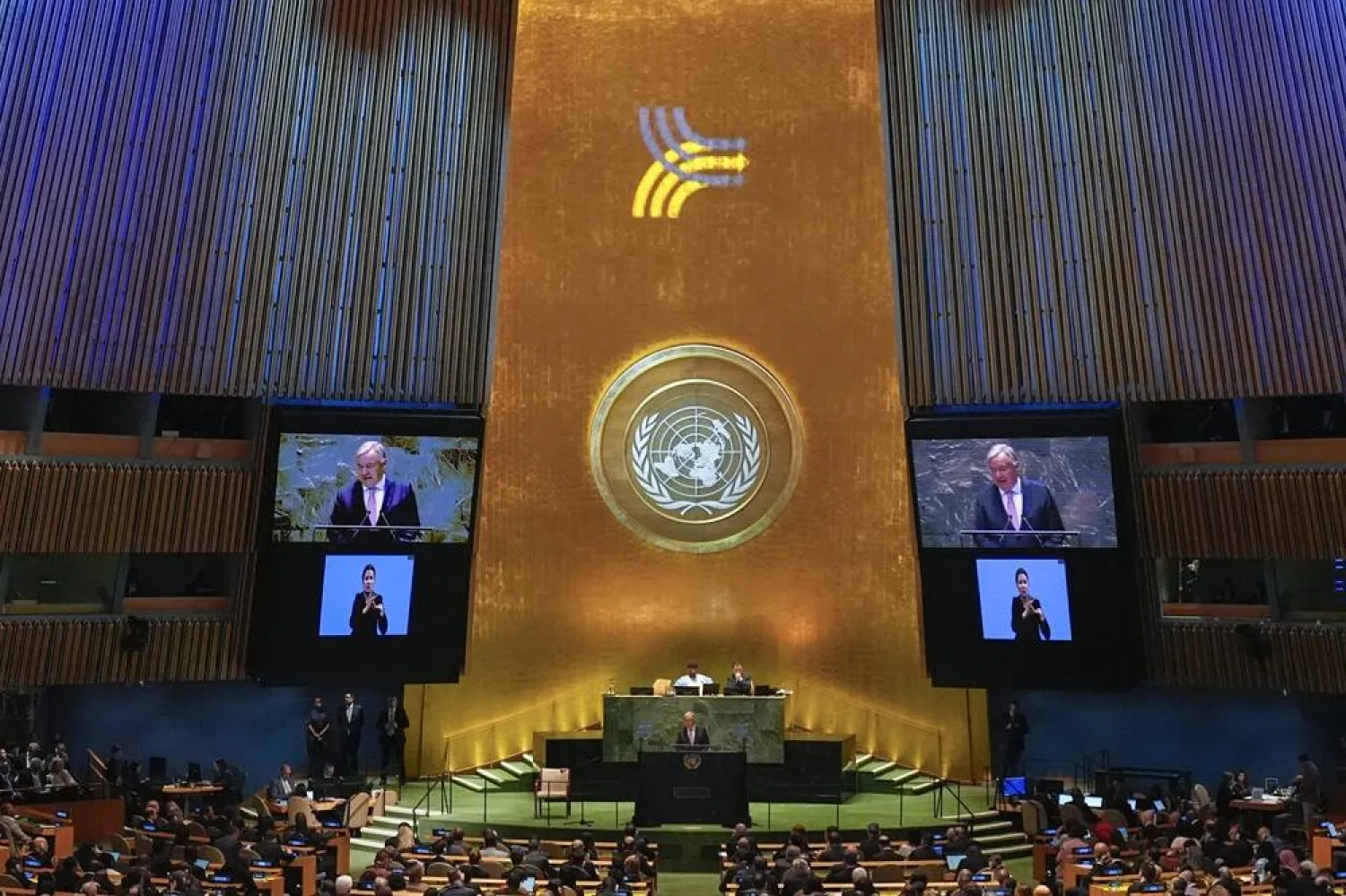UN Secretary-General António Guterres warned world leaders Tuesday that impunity, inequality and uncertainty are creating an "unsustainable world" where a growing number of countries believe they should have a "get out of jail free" card.
"We can't go on like this," he said as the General Assembly’s annual debate among presidents, prime ministers, monarchs and other leaders began.
Citing deepening geopolitical divisions, wars with no end in sight, climate change and nuclear and emerging weapons, he said humanity is "edging towards the unimaginable – a powder keg that risks engulfing the world."
But, he said, "the challenges we face are solvable" if the international community confronts the uncertainty of unmanaged risks, the inequality that underlies injustices and grievances and the impunity that undermines international law and the UN’s founding principles.
"Today, a growing number of governments and others feel entitled to a "get out of jail free’ card," he said in reference to the classic board game Monopoly.
The world leaders' meeting opened under the shadow of increasing global divisions, major wars in Gaza, Ukraine and, Sudan and the threat of an even larger conflict in the wider Middle East.
Guterres previewed his opening speech at Sunday’s "Summit of the Future," where he pointed to conflicts from the Middle East to Ukraine and Sudan and to the global security system, which he said is "threatened by geopolitical divides, nuclear posturing, and the development of new weapons and theaters of war."
He also cited huge inequalities, the lack of an effective global system to respond to emerging and even existential threats, and the devastating impact of climate change.
US Ambassador Linda Thomas-Greenfield told reporters last week that the US focus in the assembly will be on ending "the scourge of war," lamenting that roughly 2 billion people live in conflict-affected areas. "The most vulnerable around the world are counting on us to make progress, to make change, to bring about a sense of hope for them," she said.
The Iranian leader accused Israel on Monday of seeking a wider war in the Middle East and laying "traps" to lead his country into a broader conflict. He pointed to the deadly explosions of pagers, walkie-talkies and other electronic devices in Lebanon last week, which he blamed on Israel, and the assassination of Hamas’ political leader Ismail Haniyeh in Tehran on July 31, hours after Pezeshkian’s inauguration.
"We don’t want to fight," the Iranian president said. "It’s Israel that wants to drag everyone into war and destabilize the region. … They are dragging us to a point where we do not wish to go." Iran supports both Hamas in Gaza and Lebanon’s Hezbollah militants.
Pushing the principle that ‘right makes might’ International Rescue Committee President David Miliband recalled that at the San Francisco conference in 1945 where the UN was established, then-US President Harry Truman pleaded with delegates to reject the premise that "might makes right" and reverse it to "right makes might," which was enshrined in the UN Charter.
"Almost 80 years later, we have seen the terrible consequences of the failure to flip this equation," Miliband said. "In contexts like Gaza, Sudan and Ukraine, might is making right."
Facing mounting global humanitarian needs, unchecked conflict, unmitigated climate change and growing extreme poverty, Miliband challenged world leaders asking: "How will you strengthen, not weaken, the principles of the UN Charter for the next 80 years?"
The assembly’s annual meeting, which ends on Sept. 30, followed the two-day Summit of the Future, which adopted a blueprint aimed at bringing the world’s increasing divided nations together to tackle the challenges of the 21st century from conflicts and climate change to artificial intelligence and women's rights.
The 42-page "Pact for the Future" challenges leaders of the 193 UN member nations to turn promises into real actions that make a difference to the lives of the world’s more than 8 billion people.
"We are here to bring multilateralism back from the brink," Guterres said.
By adopting the pact, leaders unlocked the door, he said. "Now it is our common destiny to walk through it. That demands not just agreement, but action."
At last year’s UN global gathering, Ukraine and its president, Volodymyr Zelenskyy, took center stage. But as the first anniversary of Hamas’ deadly attack in southern Israel approaches on Oct. 7, the spotlight is certain to be on the war in Gaza and escalating violence across the Israeli-Lebanon border, which is now threatening to spread to the wider Middle East.
Palestinian President Mahmoud Abbas is scheduled to speak Thursday morning and Israel’s Prime Minister Benjamin Netanyahu on Thursday afternoon.
Zelenskyy will get the spotlight twice. He will speak Tuesday afternoon at a high-level meeting of the UN Security Council called by the United States, France, Japan, Malta, South Korea and Britain, whose foreign ministers are expected to attend. He will also address the General Assembly on Wednesday morning.









